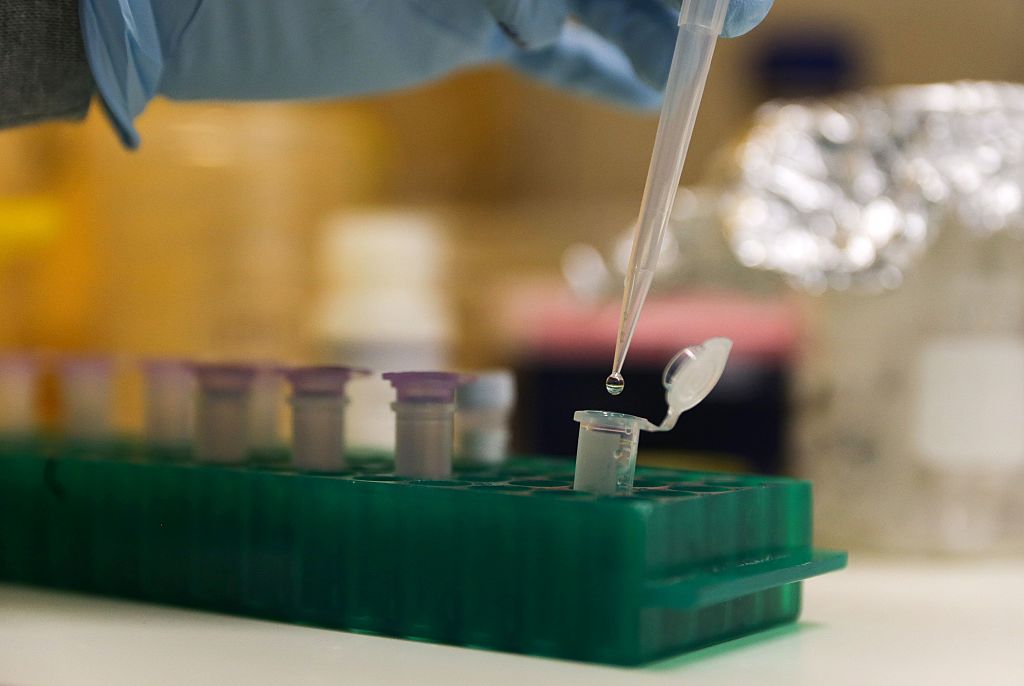US biomedical company Thermo Fisher Scientific announced on January 5 that it will no longer sell human DNA identification technology to the Chinese police in the Tibet Autonomous Region. A similar decision was made in 2019 in the northwest region of Xinjiang, where the Chinese government’s persecution of Uyghurs amounts to crimes against humanity.
Supporting the protection of the rights of Tibetans and Uyghurs in China is essential, and Thermo Fisher’s decision is important and welcome. However, they fall short of what is needed given the severity of the abuse. And within China, the issue of large-scale DNA surveillance extends beyond these two regions.
Thermo Fisher’s announcement sidesteps the important question of what will happen to the sale of its technology to Chinese police forces in other parts of the country.
For the past seven years, Human Rights Watch has shown that the mass collection and cataloging of people’s DNA forms part of Chinese police’s nationwide mass surveillance system, which includes facial and voice recognition technologies, It has been documented that big data platforms are being used. These technologies have enabled the Chinese government to maintain a vicious grip over its complex society, from cities to remote borderlands, cornering dissidents and neutralizing protests.
In 2017, Human Rights Watch exposed how the Chinese government is forcing innocent civilians to submit blood and DNA samples across the country. Police enter this genetic information into a nationally searchable database without the public’s consent, which currently contains more than 140 million DNA profiles representing 10 percent of China’s population. may be included. This scale of genomic surveillance is unprecedented in the world.
We also noted that Uyghurs in Xinjiang are particularly targeted by authorities in large-scale DNA surveillance programs.
Human Rights Watch wrote to Thermo Fisher about its findings at the time. Thermo Fisher said that while it is “impossible” for the company to monitor the usage of all its products, it “expects all customers to act in accordance with appropriate regulations and industry standard best practices.” . Thermo Fisher took no notable action at the time and did not respond to follow-up letters.
That year, the Chinese government increased its abuses against Uyghurs and other Turkic Muslims in Xinjiang. In addition to Orwellian surveillance, authorities carried out mass arbitrary detention in political education camps and prisons, forced labor, forced family separation, sexual and reproductive abuse, and cultural persecution. These widespread and systematic abuses amount to crimes against humanity. After two years of heightened attention to these abuses, along with a vigorous campaign by Uyghur activists and pressure from the US Congress, Thermo Fisher stopped selling to Xinjiang police in 2019.
However, as Human Rights Watch pointed out to the company, mass DNA collection is not limited to Xinjiang. In 2022, Human Rights Watch and Citizen Lab independently documented such abusive DNA collection in Tibet. Thermo Fisher’s recent announcement that it would cease sales to Tibet was made “based on a number of factors,” but details were not disclosed.
Companies operating in China already know, or should know, that the introduction of technology for mass surveillance by Chinese police is a national project, so they cannot sell to specific regions of China. It is never appropriate to stop only In 2020, a report by the Australian Strategic Policy Institute, a think tank, said Chinese police were building a male DNA database that would allow them to identify all men in the country, and Thermo Fisher could provide technology for this frigid situation. showed that it played an important role. monitoring program.
One way to ensure that Thermo Fisher’s equipment is used only for legitimate purposes is that the company has a rigorous human rights due diligence process in place. This includes independent audits monitoring all customers in China and publication of audit results.
Until then, the company should cease all sales of human DNA identification products to China’s police, judiciary, and all forensic genetics laboratories. The company has not told Human Rights Watch why it has not done so yet.

Starting in 2022, the U.S. Department of Commerce is authorized to impose export controls on U.S. technology used by foreign “military, security, and intelligence agencies.” should be expanded to include As several members of Congress have repeatedly requested.
Given the Chinese government’s questionable global leadership in innovation in surveillance methods and systems, next steps by companies like China’s Thermo Fisher will always have implications for human rights around the world.
Maya Wang is acting China director at Human Rights Watch. Yves Moreau is Professor of Bioinformatics at the University of Leuven, Belgium.
Copyright 2023 Nexstar Media Inc. All rights reserved. This material may not be published, broadcast, rewritten, or redistributed.
